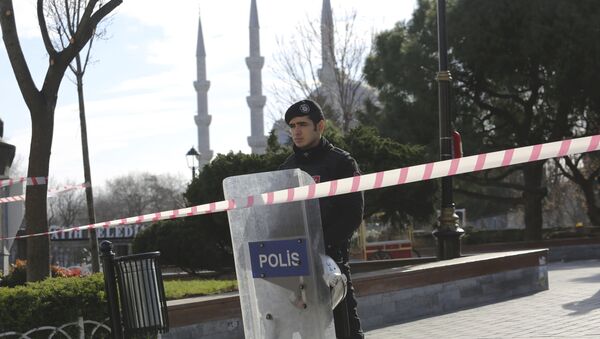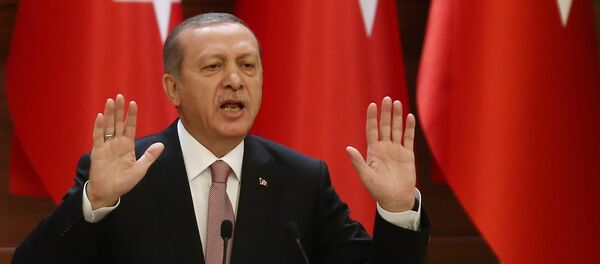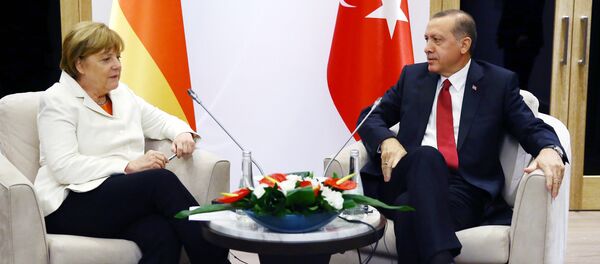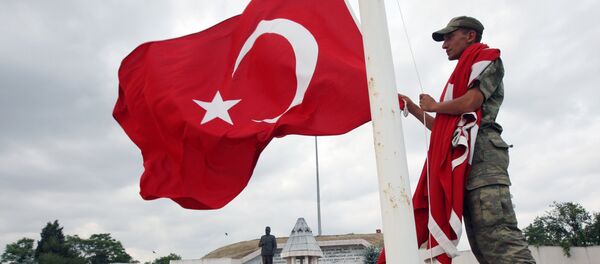However, there is something fishy about the Turkish leadership's statement, according to Bangkok-based geopolitical analyst Toni Cartalucci.
Ankara has a long record of colluding with Islamists in the region, the analyst insists, referring to a 2012 Defense Intelligence Agency's (DIA) document which named Turkey as one of the benefactors of the Syrian opposition, headed by the Muslim Brotherhood, Salafists and al-Qaeda in Iraq (AQI).
"If the situation unravels there is the possibility of establishing a declared or undeclared Salafist principality in eastern Syria (Hasaka and Der Zor), and this is exactly what the supporting powers ["The West, Gulf countries, and Turkey"] to the opposition want, in order to isolate the Syrian regime, which is considered the strategic depth of the Shia expansion (Iraq and Iran)," the DIA report read.
Remarkably, Can Dundar, the editor in chief of the Turkish newspaper Cumhuriyet, and Erdem Gul, the newspaper's Ankara bureau chief were arrested by the Erdogan regime after shedding light on Ankara's arms smuggling to Islamic extremists.
Ankara has repeatedly denied allegations regarding its involvement in aiding Islamist militants in Syria.
However, in March 2013 C. J. Chivers and Eric Schmitt of The New York Times reported that "with help from the CIA, Arab governments and Turkey have sharply increased their military aid to Syria's opposition fighters in recent months, expanding a secret airlift of arms and equipment for the uprising against President Bashar al-Assad, according to air traffic data, interviews with officials in several countries and the accounts of rebel commanders."
But that is not all. Cartalucci points to Deutsche Welle's (DW) 2014 report "IS' [Daesh] supply channels through Turkey," telling of fleets of trucks moving from Turkey to Raqqa, the de facto capital of Daesh.
"Every day, trucks laden with food, clothing, and other supplies cross the border from Turkey to Syria. It is unclear who is picking up the goods. The haulers believe most of the cargo is going to the "Islamic State" militia. Oil, weapons, and soldiers are also being smuggled over the border, and Kurdish volunteers are now patrolling the area in a bid to stem the supplies," the report stated.
It turns out that Turkey has become the de facto cornerstone of Daesh's logistical and financial networks, Cartalucci stresses, posing the question why the Islamist group decided to carry out the deadly assault in Istanbul.
The charade's solution is obvious, the analyst believes:
"If Turkey is blaming ISIS [Daesh] for the recent attack in Istanbul, then it is clear that it is in turn implicating itself. When asking why it would do that, the simplest answer stands to reason — because if people believe ISIS is attacking Turkey, they are less likely to believe Turkey is in fact backing ISIS," he suggests in his latest article to New Eastern Outlook.
To confirm his assumption, Cartalucci refers to Turkey's old record of domestically-orchestrated terrorist attacks: the country's Grey Wolves organization, a Cold war-era paramilitary group, conducted a series of political assassinations and terror assaults that killed thousands within Turkey's borders and beyond in the 1970s.






